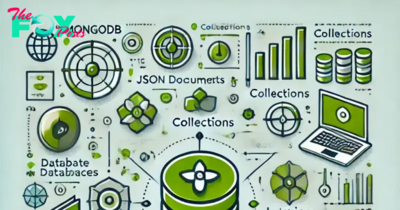Technology
Will Artificial Intelligence Search Kill Website Traffic? 5 Things To Know
There is no doubt that artificial intelligence (AI) is reshaping the landscape of online search. With the rise of AI-powered tools like ChatGPT and the ongoing AI-driven comPetition among major search engines like Google, Bing, and Baidu, concerns have emerged about the potential impact on website traffic.
Some in marketing speculate that AI-powered search engines producing more direct answers and fewer links, could potentially reduce traffic to numerous websites. But other experts stress that artificial intelligence will not destroy organic search traffic.
Here are five things to know.
1. AI search reduces links
AI-driven tools like Bing’s ChatGPT and Google’s Bard have the main focus of providing natural language responses rather than a list of links, CNBC reported So when a user asks the AI tool a question, AI attempts to answer in a paragraph or conversational manner. The downside, it gives no reference or link as to where the answer is derived from.
2. A tactical shift in search engine optimization
Answer Engine Optimization (AEO), a concept that aligns with the evolution of AI-driven search, involves optimizing a website to enhance its ranking on answer-focused platforms such as voice search, virtual assistants, and AI chat, Practical eCommerce reported. Instead of focusing on keywords or entities, websites optimized for AI chat tools like ChatGPT concentrate on addressing natural language questions.
Discover How Affordable Peace of Mind Can Be:
Get Your Life Insurance Quote Today!
3. Search results become better
AI-enabled search could actually significantly boost traffic to some websites. Since AI-powered search engines are focused on accuracy, this might actually increase organic traffic for websites with highly relevant content or those proficient in AEO strategies, The Rebooting reported.
4. Rise of new, specialized search engines
The popularity of ChatGPT has captured the market’s attention and has sparked interest in niche search engines. In the past, optimizing for major search engines like Google was sufficient for success. However, if AI-driven search engines proliferate, Businesses may need to optimize for multiple channels to maintain visibility and traffic, according to Practical eCommerce.
5. Publisher concerns and legal considerations
Website publishers have expressed concerns that AI-powered search, particularly if it becomes the default way of presenting results, could reduce the number of visitors to their sites. Some publishers are also exploring ways to prevent AI firms from scraping their content for training AI models. This highlights the ongoing tension between Technology companies and content creators regarding fair usage and compensation for content.
Photo by Thirdman: https://www.pexels.com/photo/a-man-sitting-behind-his-office-desk-5060556/
-

 Technology1d ago
Technology1d agoBreaking up Google? What a Chrome sell-off could mean for the digital world | The Express Tribune
-

 Technology1d ago
Technology1d agoAI harm is often behind the scenes and builds over time – a legal scholar explains how the law can adapt to respond
-

 Technology1d ago
Technology1d agoNewborn planet found orbiting young star, defying planet formation timeline | The Express Tribune
-

 Technology2d ago
Technology2d agoAwkwardness can hit in any social situation – here are a philosopher’s 5 strategies to navigate it with grace
-

 Technology2d ago
Technology2d agoNo need to overload your cranberry sauce with sugar this holiday season − a food scientist explains how to cook with fewer added sweeteners
-

 Technology2d ago
Technology2d agoTeslas are deadliest road vehicles despite safety features: study | The Express Tribune
-

 Technology2d ago
Technology2d agoThere Is a Solution to AI’s Existential Risk Problem
-

 Technology3d ago
Technology3d agoUS pushes to break up Google, calls for Chrome sell-off in major antitrust move | The Express Tribune



























